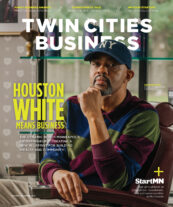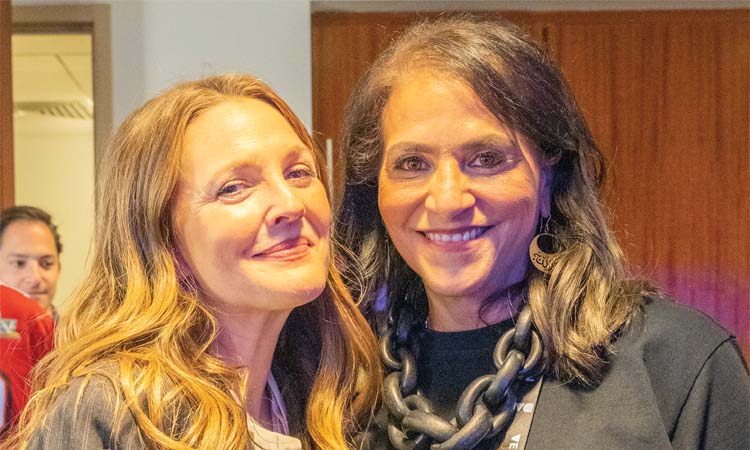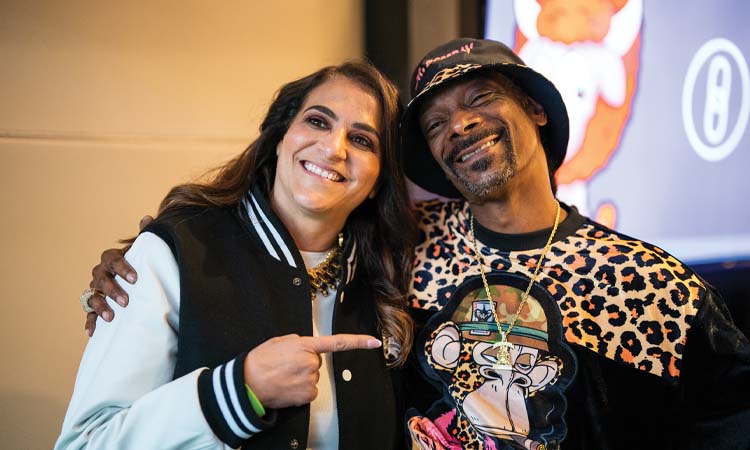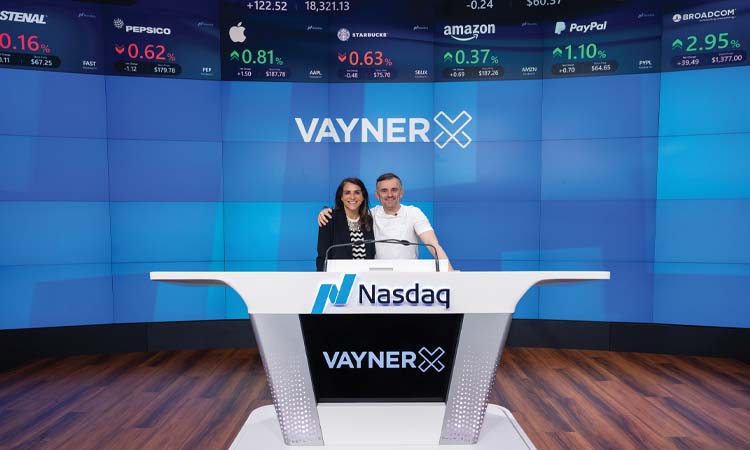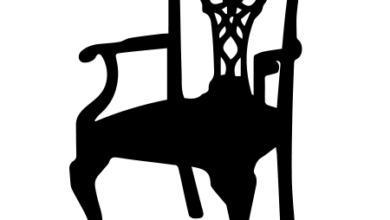Q&A: Author and Entrepreneur Maha Abouelenein
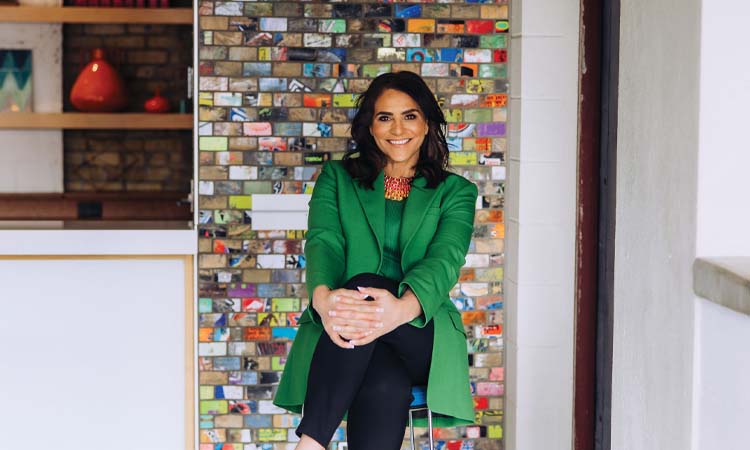
Maha Abouelenein breezes into Starbucks in Wayzata, dressed in the modern-day entrepreneur’s work uniform: black joggers that could pass for dress trousers and a black bomber jacket with white stripes down the sleeves. Her phone buzzes while she orders an iced coffee. It’s Halle Berry, one of the many celebrities in Abouelenein’s contacts, just writing to say she received the book and can’t wait to read it. Abouelenein smiles—she couldn’t have timed the text more perfectly.
Abouelenein is founder and CEO of Digital & Savvy, a strategic communications consulting firm with a presence in the U.S. and Dubai. Her client list includes high-profile businessmen like serial entrepreneur Gary Vaynerchuk (known to his 38 million social followers as @garyvee); Matt Higgins, co-founder of RSE Ventures (recognized by the masses as a recurring shark on ABC’s Shark Tank); and Jim Kwik, brain coach, podcaster, and bestselling author.
After years of supporting their ventures and many large-scale organizations and events, Abouelenein is stepping into the spotlight with her first book, 7 Rules of Self-Reliance: How to Stay Low, Keep Moving, Invest in Yourself, and Own Your Future. The book was released Oct. 8. It’s memoir meets professional development meets life coach, and as Abouelenein lays out in her intro, the book is directed at “entrepreneurs, professionals seeking career advancement, recent graduates and students, those thinking about a side hustle or second-act career, and anyone inspired to take control of their lives.”
Abouelenein does not believe in compartmentalization. Her principles for career advancement are the same rules she lives by. She’s a fast-talking, very direct, and driven entrepreneur in her own right, whose career has taken her from Minneapolis to Cairo to Dubai and back, as well as onto stages and events with the likes of Bono, Deepak Chopra, Eva Longoria, Drew Barrymore, Jessica Alba, Snoop Dogg, and, of course, Halle Berry.
But the celebrity dish—and she could dish—pales in comparison to Abouelenein’s own story. She grew up in Mankato, the daughter of Egyptian immigrants. Her father was dean of the business school at Mankato State. In 1997, he was asked to help build a business school at the American University of Sharjah in the United Arab Emirates, and her parents decided to move back to the Middle East, settling in Cairo. Abouelenein was 27 at the time and working in promotions and marketing for General Mills. She uprooted her life and career to move to Egypt with her parents and care for her mom, who had multiple sclerosis and was fully disabled. And then came the double whammy: Five years after the move, her father was diagnosed with ALS. Abouelenein found herself far from her network at home, working full time, and caring for two gravely ill parents.
Managing their care actually became her introduction to running a business: She hired nurses and made spreadsheets for vital signs, food intake, and medicine distribution. She did research and made all the medical decisions. And somehow, she also managed to build a career that took her to unlikely places, like the office of the prime minister of Egypt and Google in Dubai. She convinced her first Twin Cities employer, Weber Shandwick, to start a Middle East division, and she served as managing director.
“Self-reliance,” she writes, “is not about going it alone and shutting the world out—in fact it’s the opposite—it’s about leveraging the power of yourself and others to own your future.”
Before heading out on a fall book tour, she talked to TCB about her career, caretaking, and coming home.
After living overseas for 23 years, what brought you back to Minnesota?
I’m so proud to be from Minnesota. This is home. It was March 2020, I was in Dubai, and the pandemic was just hitting, and I thought: What if I never see my family again? (Her sister is a longtime General Mills exec.) So I moved to Wayzata.
The stories you share about caring for two sick parents are some of the most compelling and moving in the book. According to Eagan-based CaringBridge, there are an estimated 53 million family caregivers in the U.S. and growing. How did you get through that time?
You know that line “you have to put your mask on before someone else’s”? You really do have to take care of yourself. I would think of it like “one for you, one for me.” So I wouldn’t feel guilty if I needed to go for a walk or had to go away on business. It’s a thankless job, and at the end of the day, you just have to know you’re a good person and you’re letting the person you love live with dignity.
It seems that your approach to caregiving set the stage for starting your own business.
I really did have my own little operation: staff, payroll, medical equipment. I had to keep the team motivated, navigate stress and anxiety. I was all about whatever I could do to just win the day. It’s a good approach to life.
Of all the lessons and tip lists in your book, what do you most hope readers take away?
Reinventing yourself at any age. You’re more capable of things than you think you are. One of the things I’ve learned in this process: We trust other people to make decisions for us when actually we should just make decisions ourselves. It can become a superpower. Everyone else works on give and take. Don’t do that, and you’ll see the results.
You work with a lot of big personalities. How do you stay focused on your value while serving them?
I like being behind the scenes, supporting them and bringing value. Their personalities teach me a lot. Like, I want to learn to be an empathetic leader. Sometimes, it’s about what not to do.
Keeping up on social media trends is part of your job, but for business executives in general, how important is it to engage?
You should know what’s happening. If you want to tell your story, you’ve got to be relevant to what people are already talking about.
You have six, sometimes seven, people on your Digital & Savvy team, living all around the U.S. and in Brazil. What’s your approach to leading a dispersed team?
We have fun. We have weekly staff meetings, and we constantly share content about what’s relevant in culture. I make a point to ask, “How are you feeling?” “Are you taking breaks?” I look at calendars to make sure the team isn’t in back-to-back meetings. And we make time every day to read. Just seven minutes a day can make a profound impact on mental health.
What are you reading?
I read multiple books at a time. Right now it’s Adam Grant’s Hidden Potential: The Science of Achieving Greater Things, George Stephanopoulos’ new book, The Situation Room: The Inside Story of Presidents in Crisis, and a new novel by Matt Haag, The Life Impossible.
Having returned to your home state as a leader and business owner, what are your observations about business and life in Minnesota?
We have such a thriving entrepreneurial ecosystem, and we’re home to some of the biggest Fortune 500s. We get a lot of accolades for being a best place to live—Minnesota’s branding is strong around quality of life, education, and health care. We need to talk more about how to bring in talent, and we need to be a hub for something we could export.
Maha Abouelenein’s Top Four Ways to Build Your Personal Brand Offline
Excerpts from 7 Rules of Self-Reliance
1. Build genuine relationships. Nothing beats being genuine, and if you focus on creating genuine relationships based on listening and reciprocity with shared interests and goals, you will win.
2. Help your network. The biggest way to win as a personal brand is to be of service to others. A cornerstone of my brand is this sentence: “How can I help?”… Always offer to help before you ask for something and then give with generosity. And if you don’t have the knowledge, offer a contact who does.
3. Diversify your events. Attending industry-relevant conferences or summits allows you to meet people with similar interests and provides opportunities to brainstorm and connect with them on a personal level. You can take your event networking to the next level by showcasing your expertise as a speaker instead of an attendee. Then go one step further and attend events you wouldn’t normally consider to reach new audiences, gain new insights, and develop new relationships.
4. Create a personal board of directors. Pick two or three people who will hold you accountable when it comes to reaching your goals. … These are people who will keep you honest and think about what’s in your best interest. … The other thing I do is write an annual report or letter at the beginning of the year saying these are my missions or objectives for the year. This helps hold yourself accountable.
Source link

